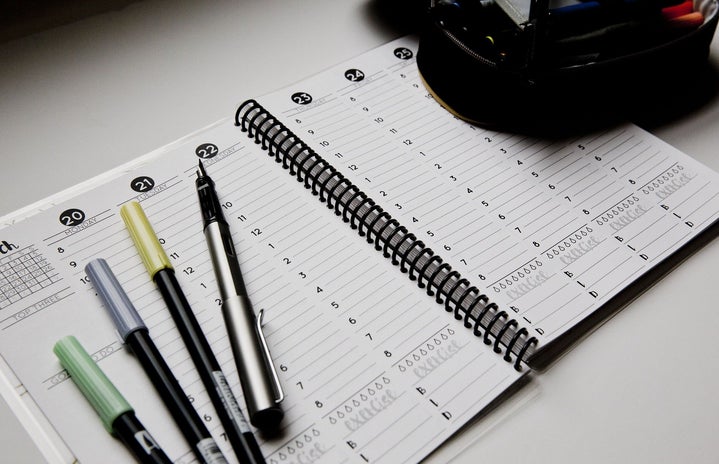With the end of Term 2 fast approaching, we are all starting to pack our suitcases and heading out of the university bubble for a break. However, the word “break” does not often seem all that applicable to this time of year. Deny it all you want, but work is piling up and exam season is looming, with most people facing the prospect of tests, deadlines or even finals upon their return to university. However, fear not! Here at HCX we have put together a few tips and tricks for balancing your studies.
1. Take a rest
Term has been long. Though you might wish cram as much revision into the holidays as possible from the moment you return home, you run the risk of burning yourself out just before your exams. When you get home, take a few days to recuperate and take stock of Term 2. If this means catching up on sleep, do it! Lie in bed all day watching films if you wish, read a non-taxing book or take a gentle walk. When you do begin your work, you will most likely be rested and ready to take on that studying. Make sure the break does not turn from days into weeks, though – too much resting might leave you more stressed if you have little time to revise.
2. Make Easter yours
With Easter Sunday falling on March 27 this year – just two days after the last day of Term 2 – it makes sense to incorporate this day into your rest period if you celebrate it. That way, you get time to celebrate the occasion (if you are religious), eat lots of chocolate and see any extended family who have come to visit.
3. Get essays out of the way before exam preparation
If you have essay deadlines set around the beginning of Term 3, try to use the break as a means of getting them done in advance. After you have had a few days off, try and write your essays in the early stages of the break – getting them out of the way means you can then devote your efforts to revision for any upcoming unseen exams.
4. Make a revision timetable
They do not work for everyone, but making a revision timetable with periods of revision with breaks in between, may help you study effectively. George Turnbull, former exams doctor for QCA and Ofqual, has previously suggested building up revision periods, with breaks of no more than 10 minutes in between.If this is not for you, make a sticky note timeline – write each exam and its date and time on a sticky note and line them up. This gives you a physical reminder of when each exam is approaching.
5. Incorporate socialising and recreation into revision rewards
After a few days of revision, reward yourself by doing something different. A change of scene will refresh your mind and hopefully help you return to work with a positive outlook. Try incorporating social activities with friends from home, like meeting up for lunch or watching a film, so you do not have to miss out on catching up over the break. At the same time, remember to keep an eye on how much you are socialising – if you are going out day after day, you might be letting revision fall by the wayside. If you are looking for a shorter break, try going for a quick run round the block or doing some yoga in a different room from where you have been revising.
6. Study with others
If you and other friends from home have exams, consider meeting up with one or two to revise. Studying with company helps you see that others are in the same boat, and seeing others working can help motivate you to study too. However, the influence of others can be distracting, so choose who you work with wisely.
So having the right balance between work and rest is essential in your Easter break. We suggest you plan out your time and have a great holiday

